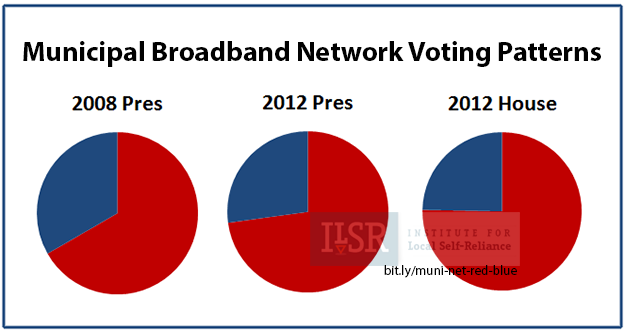Grand Junction Will Vote to Reclaim Municipal Telecommunications Authority
Grand Junction will join a number of other Colorado communities who asked voters for an exemption to SB 152 reports KKCO 11 News. Ballot measure 2A, asking voters to approve the city's right to provide Internet access and cable TV service will be decided in the April 7th election.
Measure 2A asks for a yes or no on the following question:
RESTORING AUTHORITY TO THE CITY TO PROVIDE EITHER DIRECTLY OR INDIRECTLY WITH PUBLIC OR PRIVATE SECTOR PARTNERSHIPS HIGH-SPEED INTERNET AND CABLE TELEVISION SERVICE SHALL THE CITY OF GRAND JUNCTION, WITHOUT INCREASING TAXES BY THIS MEASURE, BE AUTHORIZED TO PROVIDE, EITHER DIRECTLY OR INDIRECTLY WITH PUBLIC OR PRIVATE SECTOR PARTNER(S), HIGH-SPEED INTERNET SERVICES (ADVANCED SERVICE), TELECOMMUNICATIONS SERVICES AND/OR CABLE TELEVISION SERVICES AS DEFINED BY §§29-27-101 TO 304 OF THE COLORADO REVISED STATUTES, INCLUDING BUT NOT LIMITED TO ANY NEW AND IMPROVED HIGH BANDWIDTH SERVICE(S) BASED ON FUTURE TECHNOLOGIES, TO RESIDENTS, BUSINESSES, SCHOOLS, LIBRARIES, NONPROFIT ENTITIES AND OTHER USERS OF SUCH SERVICES, WITHOUT LIMITING ITS HOME RULE AUTHORITY?
Grand Junction, located on the western edge of the state, is home to approximately 147,000 people. Their interest in the SB 152 opt out generates from the need to be economically competitive with Longmont, Montrose, and the other Colorado towns that have already passed similar ballot measures.
The Daily Sentinel covered the region's broadband problems in a recent article:
“Broadband is not a selling point. It’s an expectation,” said Kelly Flenniken, director of the Grand Junction Economic Partnership. The group works on behalf of local entities to lure companies and increase business opportunities in the Grand Valley.
“It’s a modern day utility. It’s sort of like saying our roads are paved, too,” she said. “I really think from an economic development standpoint, it’s about maintaining a competitive position. If we’re trying to grow solo entrepreneurs, they’re going to want to live here. We want to make it so they can work here.”







 Some 3 out of 4 communities have voted Republican in recent elections, a trend that has become more pronounced across these elections. And as elections in non-presidential years tend to skew more conservative, we would expect the results to show an even greater trend toward voting for Republicans.
With
Some 3 out of 4 communities have voted Republican in recent elections, a trend that has become more pronounced across these elections. And as elections in non-presidential years tend to skew more conservative, we would expect the results to show an even greater trend toward voting for Republicans.
With 


